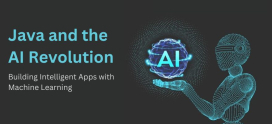How Can AI Aid Your Marketing and Sales Strategy?
Artificial intelligence has been helping businesses stay ahead in the competition for years now. In fact, 9 in 10 leading businesses are currently investing in AI-empowered tools and platforms. From AI tools that automate accounting to machine learning technology that help doctors make more accurate diagnosis, artificial intelligence has been helping industries step up their game.
In marketing and sales, technologies that help drive growth, personalize customer experience, and increase revenue are clearly good investments. Companies find AI technologies to be exceptionally powerful tools to drive business goals and lead in the competition.
Let’s see how artificial intelligence aids in marketing and sales strategies.
Deeper Understanding of Customers
With the adoption of digital marketing, companies are able to possess a wealth of data and information about their customers. Now, you can extract information from customers such as income ranges, personal interests, careers, and general interests, just to name a few. These insights are valuable in customer-centered decisions that businesses make. Using these insights, marketers can easily craft customer segmentation and identify which customers to target using what campaign, match customers to products they will most likely buy, and avoid promoting irrelevant and unavailable products.
A More Personalized Customer Experience
Getting a hold of customer information is just half the story, though. To fully utilize the data gathered, they must be used in improving marketing and sales strategies — this where AI comes in. AI is able to make sense of the data available and create more comprehensive customer profiles. The more robust customer profiles are, the more personalized your marketing messages and content will be; and a more personalized outreach can make for a better customer experience.
More and more companies are now using AI-powered tools to personalize their websites, social media channels, videos, and other content to better respond to what customers want. eCommerce businesses have also started making their push notifications custom-tailored and mobile-friendly, and have garnered positive results.
Better and Faster Customer Service
Visit any website today and you’ll probably encounter a chatbot waving hello and asking what they can do for you. These chat robots have become important marketing tools in addressing inquiries from customers and making sure that they are responded to wherever they are in the world, 24/7.
Aside from assisting in customer inquiries, chatbots are also useful in gathering data different from how machine learning algorithms do it. Chatbots can send a post-conversation survey to customers and acquire demographic information and the reason for their visit.
Better Sales Forecasts
With meeting customers’ expectations and increasing revenue as the main goals, businesses must remain proactive in their crafting future marketing and sales strategies, and realigning, if need be. For example, data gathered from website analytics such as page views, bounce rate, calls-to-action (CTA), to name a few, must be well utilized by marketers in understanding which areas to allot more focus and resources to. Extracting and analyzing these data will help marketers make informed forecasts and predictions about customer engagements in the future, and better strategize in driving more people to the website, encouraging sign-ups, and retaining current customers.
AI applications also allow marketers to predict what customers might buy next from the data collected from past visits and purchases. This can result in higher sales as you have a clearer picture as to which products to promote and to whom.
Increased ROI and Savings
One of the many marketing challenges that businesses face is making the most of the marketing budget. The use of AI-powered tools and applications can help reduce costs and increase sales. For one, AI-powered tools and applications can streamline aspects of the business that entail repetitive and mundane tasks. This reduces human errors and give available talents the opportunity to take on more critical and productive tasks.
With AI streamlining your marketing strategy — making your outreach and content more valuable, personalized, and relevant — it is highly likely that your marketing budget can convert into increased sales and enhanced customer experience.
Personalized Pricing
Also called dynamic pricing, this pricing strategy is characterized by pricing products and services based on demand and supply. Take how ride-sharing apps like Uber increase their prices when demand surges, for example. AI, through predictive analytics of searches, cookies, history, and other activities, can provide insights on real-time pricing.
Businesses benefit from dynamic pricing by offering fewer discounts or higher prices for products that they need at the moment. On the other hand, customers can take advantage of offers when demand is down. For example, hotels offer discounts on rooms during off-peak periods to avoid vacancy.
What’s next?
At the rate it’s going, artificial intelligence is here to stay and continue revolutionizing how we do business. Marketers and sales reps must continue to integrate AI, machine learning, and chatbot automation into their strategies as these, when executed well, will ensure the effectiveness of marketing campaigns and customer accessibility initiatives in the future.


